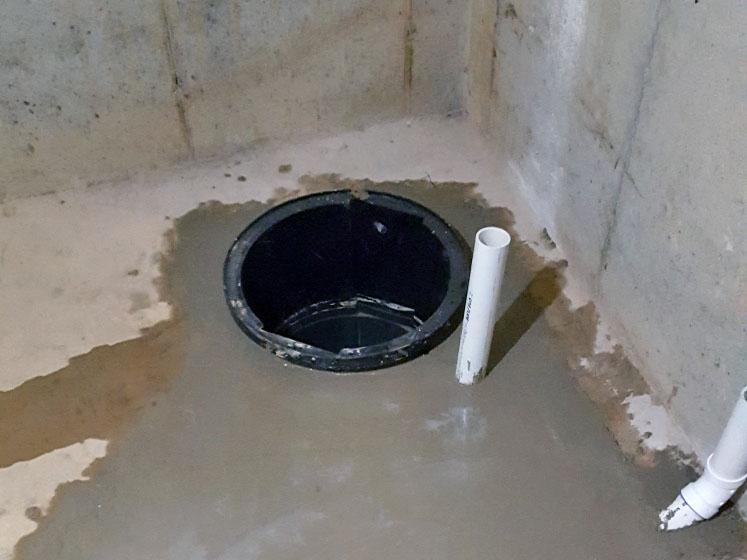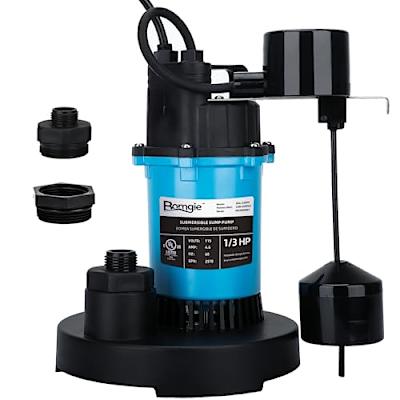Confirmed Methods for Taking Care of a Sump Pump
Confirmed Methods for Taking Care of a Sump Pump
Blog Article
The content down the page involving Keep Your Sump Pump Clean, It'll Keep You Dry is incredibly interesting. Don't overlook it.

Sump pumps are essential elements in many homes, especially in areas prone to flooding or too much moisture. They assist stop water damages by efficiently removing excess water from cellars or crawl spaces. Nonetheless, like any other device, sump pumps require routine maintenance to ensure they work effectively when needed one of the most. Cleansing your sump pump is a vital part of its maintenance, and understanding exactly how to do it effectively can conserve you from costly repairs and potential catastrophes.
Introduction
Preserving a clean sump pump is essential for its correct performance and longevity. Disregarding this important task can cause blockages, malfunctions, and inevitably, water damages to your residential or commercial property. As a result, finding out how to clean a sump pump is essential for property owners who depend on these gadgets to keep their basements dry and safeguarded.
Indications of a Dirty Sump Pump
Knowing when your sump pump needs cleaning is crucial for avoiding prospective breakdowns. Some typical signs that indicate a dirty sump pump consist of odd sounds throughout procedure, lowered water circulation, and visible debris in the pit. If you notice any of these signs and symptoms, it's important to cleanse your sump pump promptly to avoid any type of additional concerns.
Planning for Cleansing
Prior to you start cleansing your sump pump, it's essential to take some safety precautions. Start by shutting off the power to the pump to avoid any electric crashes. In addition, use proper protective gear, such as handwear covers and safety glasses, to secure yourself from dust, particles, and prospective pathogens.
Recognizing the Sump Pump
Prior to diving into the cleansing process, it's essential to have a standard understanding of exactly how a sump pump functions. Commonly set up in a pit or container below the cellar floor, a sump pump contains a number of vital elements, including a pump, a float switch, and a discharge pipeline. When water gathers in the pit, the float button turns on the pump, which then pumps the water out through the discharge pipe, away from the structure's structure.
Step-by-step Guide to Cleansing a Sump Pump
Shutting down the Power
Begin by separating the power supply to the sump pump to prevent any type of crashes while cleansing.
Checking for Proper Functioning
Before re-installing the pump, carry out a quick test to guarantee that the float switch activates the pump correctly. Put some water into the sump pit and observe the pump's procedure. If everything is working appropriately, you can rebuild the pump and reconnect the power supply.
Eliminating Particles and Dirt
Use a container or a scoop to get rid of any kind of visible debris, dust, or debris from the sump pit. Dispose of the debris properly to stop it from blocking the pump or the discharge pipe.
Cleansing the Pump and Float Switch Over
When the pit is free from debris, thoroughly get rid of the pump from the pit. Examine the pump and the float switch for any type of indicators of damage or wear. Make use of a soft brush or cloth to clean the surface areas and get rid of any gathered grime.
Flushing the System
After cleaning up the pump and float button, purge the sump pit with tidy water to get rid of any staying dust or debris. This will certainly assist make sure that the pump runs efficiently and efficiently.
Maintenance Tips to Maintain Your Sump Pump Clean
In addition to routine cleansing, there are a number of maintenance pointers you can follow to maintain your sump pump in optimal problem:
Conclusion
Cleaning your sump pump is an essential element of its maintenance and guarantees that it runs efficiently when you require it the most. By complying with the actions laid out in this guide and integrating normal upkeep into your routine, you can expand the lifespan of your sump pump and safeguard your home from water damage.
6 STEPS ON HOW TO CLEAN A SUMP PUMP PROPERLY
UNDERSTANDING SUMP PUMPS
Your sump pump plays a crucial role in protecting your home by managing and removing excess water. It primarily functions as a “shield”, guarding your basement against the damaging effects of water accumulation. The pump is housed in a sump pit in the lowest part of your basement, and its job is to pump out any water that collects there.
During heavy rainfalls or when snow melts rapidly, water can infiltrate your basement, posing potential risks like flooding, structural damage, and harmful mold growth. Here, the sump pump springs into action, pumping out the intruding water and directing it away from your home.
SAFETY FIRST
Before cleaning, remember to prioritize safety. Disconnect the sump pump from the power source to prevent any accidental electric shocks. Also, wear sturdy gloves to protect your hands from any sharp or dirty components within the pump.
REMOVE THE SUMP PUMP
After ensuring your safety, the next step is to remove the sump pump from its pit. Doing this might require careful maneuvering as you don’t want to damage any pump components. Once removed, clean the sump pit to remove any accumulated debris or sludge.
INSPECT THE PUMP
Inspect the pump for any visible signs of wear or damage. Check the power cord, float switch, and impeller housing. If any components look worn out or damaged, consider replacing them to ensure optimal performance.
CLEAN THE PUMP
Thoroughly clean the pump with warm, soapy water. Make sure to rid it of any dirt, gravel, or other debris that might impede its performance. You can use a toothbrush to clean the small, hard-to-reach parts of the pump.
REINSTALL THE SUMP PUMP
Reinstall the pump into the sump pit Make sure it’s positioned correctly to remove the water effectively Once it’s back in place, reconnect it to the power source TEST THE PUMP
Finally, pour some water into the pit to ensure the pump works correctly. It should start automatically and begin pumping out the water; if it doesn’t, check the power source and the positioning of the pump.
Remember, while cleaning your sump pump is an essential part of home maintenance, hiring a professional plumber for a thorough inspection and cleaning at least once a year is also important. This will ensure that your pump is in optimal condition, ready to protect your home from potential water damage.
BEST PRACTICES FOR CLEANING SUMP PUMP DISCHARGE PIPES
Regular Inspection: Regularly inspect your discharge pipes, especially during heavy rainfall or snowmelt periods. Look for any signs of blockage or damage. Early detection of problems can prevent serious issues down the line. Periodic Cleaning: Over time, sediment and debris can accumulate in the discharge pipes, impeding the flow of water. Regular cleaning helps keep the pipes clear and functioning efficiently. You can use a high-pressure water jet to effectively clean the pipes. Insulation During Winter: In colder climates, discharge pipes can freeze, blocking the outflow of water. Protect your discharge pipes from freezing temperatures by insulating them with foam pipe insulation. This will ensure the sump pump can continue to discharge water even in freezing conditions. Proper Positioning: The discharge pipe should be positioned to direct water away from your home’s foundation. Improper positioning can lead to water seeping back into the basement. Ensure the pipe is long enough and angled correctly. Installation of a Check Valve: A check valve prevents water from flowing back into your sump pit after the pump has pushed it out. Installing a check valve helps maintain the efficiency of your sump pump and reduces the risk of flooding. Minimize Pipe Turns: Every curve or turn in the discharge pipe can decrease the efficiency of water flow. By minimizing turns and bends in your discharge pipe, you can increase the efficiency of your sump pump. https://www.fullspeedplumbing.com/how-to-clean-a-sump-pump-properly9999/

Do you appreciate reading about How to Care for Your Sump Pump? Make a comment down the page. We will be pleased to know your thinking about this blog post. In hopes that you come back again later on. Liked our blog posting? Please quickly share it. Help another person find it. Thank you for being here. Kindly come by our blog back soon.
Book Appointment Now Report this page